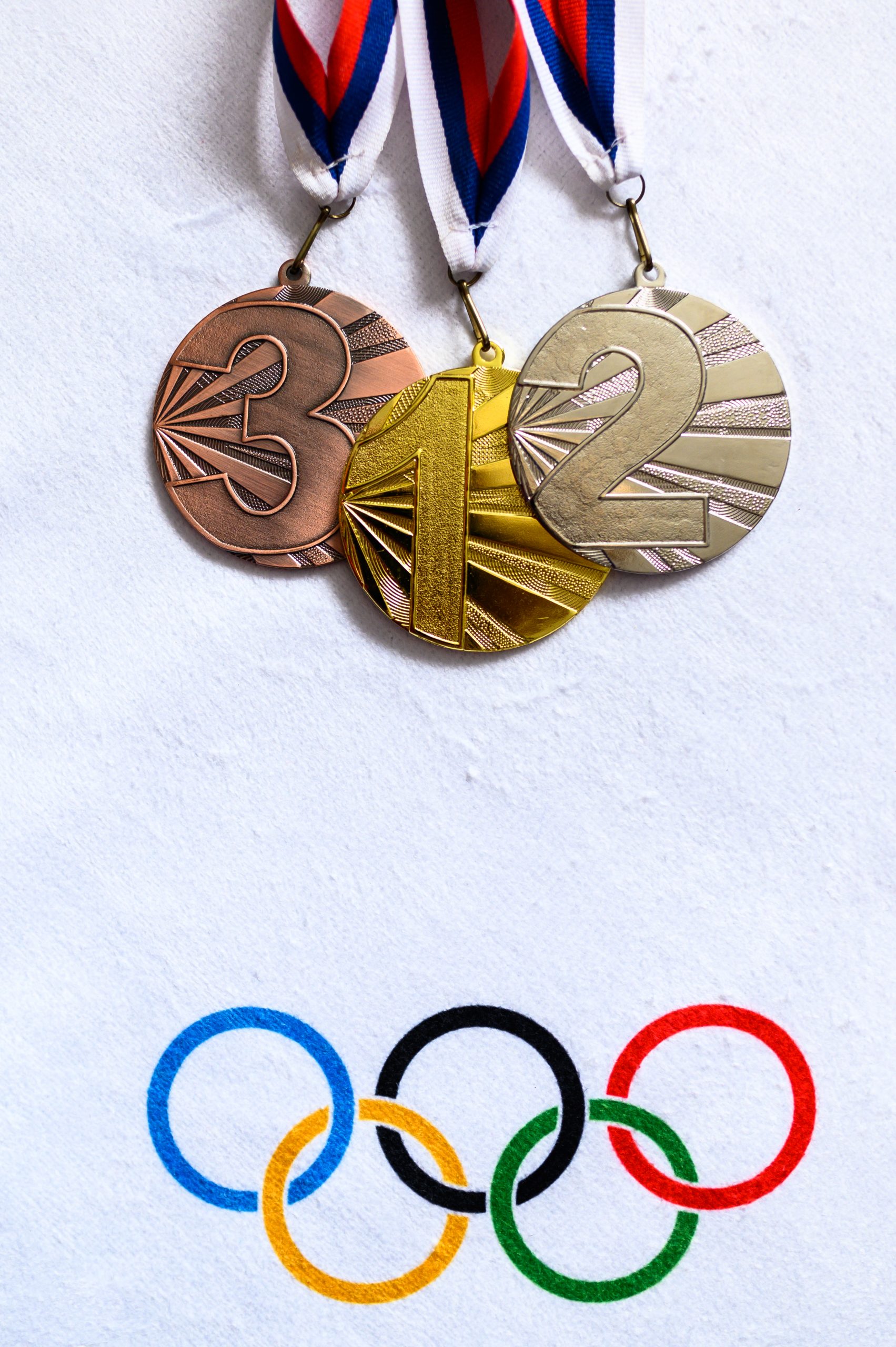“The changes to Rule 40 were intended to allow Olympic athletes to profit from non-Olympic partner companies, brands, or other organizations during the Tokyo Games Period, but with restrictions.”
 “Name, Image, Likeness” rights, the term commonly used to designate rights covered under right of publicity law, has been a popular and trending term thus far in 2021, and a hotly debated topic in the world of sports. With the Supreme Court’s ruling in NCAA v. Alston, multiple states enacting Name, Image, Likeness statutes, and the recent decision by the NCAA to suspend all Name, Image, Likeness rules for incoming and current athletes, this year is promising to reshape the advertising and sponsorship landscape for current U.S. college athletes and recruits.
“Name, Image, Likeness” rights, the term commonly used to designate rights covered under right of publicity law, has been a popular and trending term thus far in 2021, and a hotly debated topic in the world of sports. With the Supreme Court’s ruling in NCAA v. Alston, multiple states enacting Name, Image, Likeness statutes, and the recent decision by the NCAA to suspend all Name, Image, Likeness rules for incoming and current athletes, this year is promising to reshape the advertising and sponsorship landscape for current U.S. college athletes and recruits.
However, the controversies surrounding this subsection of intellectual property (IP) Law are not new to sports, and they are not unique to college athletes. For years, Olympic athletes have fought against Name, Image, Likeness restrictions set forth in the Olympic Charter and imposed by the International Olympic Committee (IOC).
In the early 1990s, the IOC enacted Rule 40 of the Olympic Charter, which was an agreement between the athletes and the IOC. Rule 40 established a “blackout” period immediately prior to and during the Olympic Games. Under Rule 40, Olympic athletes were subject to disciplinary action, including potential stripping of medals, if any non-Olympic sponsor mentioned the athlete’s name or showed their image during the blackout period. According to the IOC, the Rule was meant to protect official Olympic sponsors, as well as the athletes, from “ambush marketing.” According to Business Insider, ambush marketing is an attempt to “[draw] attention from one brand, usually the lead or official brand, onto another through various creative efforts.” For massive, global events like the Olympic Games, ambush marketers are especially prevalent.
Rio Olympics 2016
Prior to the 2016 Olympic Games in Rio, athletes participating in the Games began to express their frustration about what they deemed were overly restrictive prohibitions on their ability to leverage their relationships with non-Olympic partners. In a tweet from British Olympic athlete, Kelly Sotherton, she indicated frustration that athletes were subject to harsher punishment for violations of Rule 40 than for doping. Sotherton’s read, “If your sponsor says good luck to you in Olympic time you face being booted out #rio2016, but drugs cheats??! #rule40.” According to an article published by BBC, the IOC disseminated an extensive list of terms that non-Olympic sponsors and athletes were prohibited from using in certain contexts during the blackout period, including: 2016, Rio/Rio de Janeiro, Gold, Silver, Bronze, Medal, Effort, Performance, Challenge, Summer, Games, Sponsors, Victory, and Olympian.
Olympic Charter, Rule 40 Amendment
After the Rio Games, member athletes of the Olympic Movement drafted the Athletes’ Rights and Responsibilities Declaration for submission to the International Olympic Committee (IOC). The Olympic Movement, under the authority of the International Olympic Committee (IOC), is comprised of the International Sports Federations (IFs), the National Olympic Committees (NOCs), athletes, judges, referees, coaches and others. It is defined by the IOC as “the concerted, organised, universal and permanent action, carried out under the supreme authority of the IOC, of all individuals and entities who are inspired by the values of Olympism.” The final version of the Declaration of Rights, adopted by the IOC in October 2018, contains the follow preamble:
All members of the Olympic Movement, particularly the International Olympic Committee, the International Sports Federations and the National Olympic Committees, will strive to promote respect for these rights and responsibilities. They are encouraged to develop mechanisms for effective remedies related to these rights and responsibilities, and athletes are encouraged to make use of these mechanisms.
Under the section containing rights of athletes, the document states, “The Declaration aspires to promote the ability and opportunity of athletes to,” among other things, “Leverage opportunities to generate income in relation to their sporting career, name and likeness, while recognising the intellectual property or other rights, rules of the event and of sports organisations as well as the Olympic Charter.”
New Principles
As a result, in June of 2019, the IOC published an amended version of Rule 40 of the Olympic Charter. According to the Key Principles published by the IOC, the changes were intended to allow Olympic athletes to profit from non-Olympic partner companies, brands, or other organizations during the Olympic Games Period, but with restrictions. The newly amended rule articulates the restrictions under which athletes must operate when working with non-Olympic partners during the Olympic Games Period blackout; a period the IOC defines as beginning when the Olympic Village opens (about 10 days prior to the Opening Ceremony) and ending two days after the Closing Ceremony.
The principles further explain:
[A]thletes are able to generate income through personal sponsorships and appearing in advertising for those sponsors, and can continue to do so by being involved with well- planned advertising during Tokyo 2020. In addition, it is hoped that the worldwide exposure provided to athletes participating in Tokyo 2020 through media coverage, including the IOC’s global broadcast arrangements, can help raise their profile for years to come….by accepting some limited restrictions on these activities during Tokyo 2020, athletes who enjoy personal sponsorship deals are helping to secure funding to support all national Olympic teams, regardless of the profile or success of their athletes. In this way, those athletes are helping to ensure athletes from around the world are able to participate at Tokyo 2020 and future Olympic Games on an economically viable basis by supporting the principle of solidarity.
The five principles are summarized below:
- Advertising by Olympic Partners – this principle outlines the way in which Olympic Partners are permitted and restricted from using Participant Images for Advertising.
- Advertising by Non-Olympic Partners – contains newly adopted permissions for non-Olympic partner advertising, including the use of participant images during the blackout period. This principle also includes a fairly extensive list of requirements and restrictions to which non-Olympic partners must adhere.
- Generic Advertising – outlines permissions for general advertisements which use a Participants image prior to the start of the blackout period (for at least 90 days). It also outlines restrictions for these advertisers.
- Congratulatory Advertising – defined as “supporting messages encouraging, commiserating or otherwise supporting an athlete or a national Olympic team in connection with their participation at Tokyo 2020, and…congratulatory messages praising the athlete or a national Olympic team for their achievement at Tokyo 2020.” This principle restricts congratulatory advertising to Olympic Partners during the blackout period. However, it makes allowances for non-Olympic partners to support their contracted athletes before and after the blackout period, as long as no “Olympic Properties” are included in the advertising.
- Online Messages by Participants – allows Olympic participants to post thank-you messages on their personal websites and social media accounts before, during, and after the blackout for both Olympic Partners and personal non-Olympic partners. This principle also includes restrictions for participant thank-you messages.
Beyond Tokyo
The impact that the newly amended Rule 40 will have on advertising and sponsorship in the Tokyo Games is yet to be determined. Long term, the changes in Name, Image, Likeness for athletes in 2021 will certainly affect recruiting, participation, and the availability of sponsorship and endorsement deals for collegiate athletes and Olympians alike.
Image Source: Deposit Photos
Photography ID:335021872
Copyright:[email protected]
Author -S._E-
Image ID: 4337227

![[IPWatchdog Logo]](https://ipwatchdog.com/wp-content/themes/IPWatchdog%20-%202023/assets/images/temp/logo-small@2x.png)

![[[Advertisement]]](https://ipwatchdog.com/wp-content/uploads/2023/01/2021-Patent-Practice-on-Demand-1.png)
![[Advertisement]](https://ipwatchdog.com/wp-content/uploads/2024/04/Patent-Litigation-Masters-2024-sidebar-early-bird-ends-Apr-21-last-chance-700x500-1.jpg)

![[Advertisement]](https://ipwatchdog.com/wp-content/uploads/2021/12/WEBINAR-336-x-280-px.png)
![[Advertisement]](https://ipwatchdog.com/wp-content/uploads/2021/12/2021-Patent-Practice-on-Demand-recorded-Feb-2021-336-x-280.jpg)
![[Advertisement]](https://ipwatchdog.com/wp-content/uploads/2021/12/Ad-4-The-Invent-Patent-System™.png)







Join the Discussion
No comments yet.